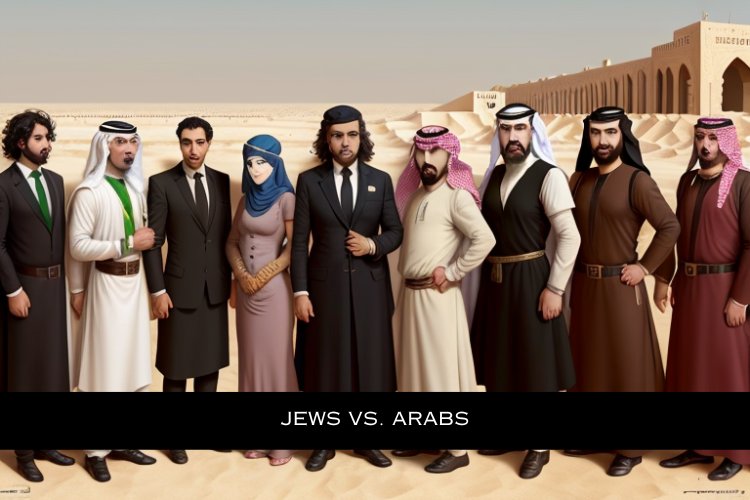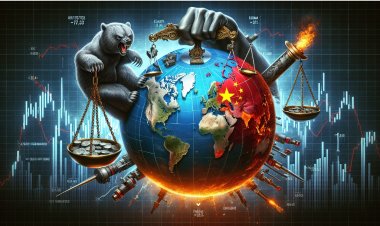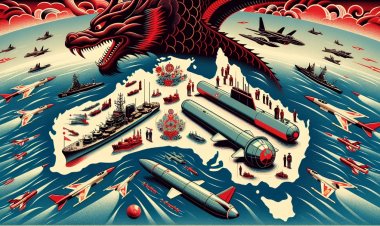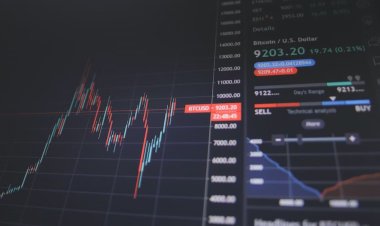Jews vs. Arabs
This article examines the many facets of the Jews versus the Arabs story, including their shared history, religious and cultural differences, the Israeli-Palestinian conflict, social and political challenges, economic and geographical factors, international involvement, and the possibility of peaceful coexistence in the future.

Jews vs. Arabs
Introduction
The longstanding and complex relationship between Jews and Arabs has shaped the history and dynamics of the Middle East. From ancient times to the modern era, these two peoples have shared a region that holds deep religious, cultural, and geopolitical significance. This article delves into the multifaceted aspects of the Jews vs. Arabs narrative, exploring their historical background, religious and cultural differences, the Israeli-Palestinian conflict, social and political challenges, economic and geographical considerations, international involvement, and the prospects for future coexistence. Understanding the intricacies of this relationship is crucial to comprehending the complexities and striving toward peace and harmony in the region.
1. Historical Background: Origins and Interactions of Jews and Arabs
1.1 Ancient Roots: Early Civilizations and the Rise of Judaism and the Arabian Peninsula
The story of Jews and Arabs goes way back, back to the ancient times when our ancestors were still figuring out how to do things without Wi-Fi. Both Jews and Arabs have roots in the ancient civilizations that sprouted in the Middle East, and their paths eventually intertwined. While the Jews were busy wandering the desert and perfecting the art of making unleavened bread (hence, no bagels), the Arabian Peninsula was becoming home to a vibrant civilization. These early Arab societies were a melting pot of different cultures and religions, and their influence can still be felt today.
1.2 Biblical Connections: Abraham, Moses, and the Promised Land
Fast forward to biblical times, and we find the Jews and Arabs starring in their own epic tales. According to the Bible, both groups trace their lineage back to the legendary patriarch Abraham. If family trees were a thing back then, theirs would be like a tangled mess of branches. Jews cherish the tales of Moses, the splitting of the Red Sea, and the Ten Commandments, and Islam also regards Moses as a prophet. It's safe to say that they have shared a fair amount of biblical drama over the years.
1.3 Islamic Expansion: The Rise of Islam and Arab Empires
Now, let's fast forward a bit more to the rise of Islam. In the 7th century, a guy named Muhammad came along and founded a new religion. Islam quickly became the hottest thing since sliced pita bread. With their rapid expansion, Arab empires were established, spreading their influence over vast territories. During this time, Jews and Arabs had interactions that ranged from peaceful coexistence to occasional tensions. Some Jewish communities flourished under Arab Muslim rule, while others faced discrimination and occasional outbreaks of strife.
2. Religious and Cultural Differences: Judaism and Islam
2.1 Beliefs and Practices: Tenets of Judaism and Islam
Let's face it, when it comes to religion, things can get a bit complicated. Jews and Muslims have their own distinct beliefs and practices that shape their respective faiths. Judaism revolves around the Torah, a sacred text that contains the teachings and laws of Moses. Meanwhile, Islam follows the Quran, which Muslims believe to be the word of God as revealed to Muhammad. From dietary restrictions to daily prayers, these two religions have their own unique ways of doing things. But hey, variety is the spice of life, right?
2.2 Holy Sites: Jerusalem, Mecca, and Medina
When it comes to holy sites, Jews and Muslims have a bit of a rivalry going on. Jerusalem, the city that's been fought over more times than the last slice of pizza, is considered sacred by both religions. The Western Wall is a significant site for Jews, while the Al-Aqsa Mosque stands as one of the holiest places in Islam. On the other hand, Muslims hold Mecca and Medina in Saudi Arabia as their most revered sites. Mecca is the birthplace of Muhammad and the destination of the annual pilgrimage known as the Hajj. So, let's just say that these places are pretty important to both groups.
2.3 Festivals and Traditions: Passover, Ramadan, and Eid al-Fitr
When it's time to party, Jews and Muslims sure know how to throw down. Jews celebrate festivals like Passover, where they retell the story of their liberation from slavery in Egypt. It involves a lot of matzos and a game of finding hidden afikomen, which is basically a dessert treasure hunt. Meanwhile, Muslims have Ramadan, a month-long period of fasting and spiritual reflection. They break their fasts with extravagant feasts during Eid al-Fitr, a celebration that's all about food, family, and fabulous outfits.
3. The Israeli-Palestinian Conflict: Root Causes and Ongoing Disputes
3.1 Zionist Movement: Birth of the Israeli State
Time to get serious, folks. The Israeli-Palestinian conflict is like the ultimate sibling rivalry, except it involves entire nations. The roots of this ongoing dispute can be traced back to the Zionist movement, which aimed to establish a Jewish homeland in Palestine. After a series of historical events, including the Holocaust, the State of Israel was created in 1948. This led to the displacement of Palestinian Arabs and triggered a conflict that continues to this day.
3.2 Palestinian Nationalism: Emergence and Struggles
In response to the establishment of Israel, Palestinian nationalism emerged as a powerful force. Palestinians sought self-determination and the creation of a state of their own. However, negotiations and attempts at finding a peaceful resolution have faced numerous challenges, leading to a complex and often tense situation.
3.3 Occupied Territories: Gaza, West Bank, and East Jerusalem
One of the most contentious aspects of the Israeli-Palestinian conflict is the issue of occupied territories. Gaza, the West Bank, and East Jerusalem are at the heart of the dispute. Israel's control over these territories, settlements, and security measures has been a major point of contention, fuelling ongoing tensions and protests.
4. Social and Political Challenges: Coexistence and Identity in the Middle East
4.1 Cultural Integration and Segregation: Arab-Jewish Communities
Living side by side isn't always easy, especially when you're nursing centuries of historical baggage. In the Middle East, there are communities where Jews and Arabs coexist peacefully, while others experience various degrees of segregation. Cultural integration and coexistence remain ongoing challenges, but there are also shining examples of friendship and cooperation.
4.2 Discrimination and Prejudice: Anti-Semitism and Islamophobia
Discrimination and prejudice have unfortunately been present throughout history, affecting both Jews and Arabs. Anti-Semitism, the hatred and discrimination against Jews, and Islamophobia, the fear and prejudice against Muslims, persist in different forms. Overcoming these prejudices is crucial for fostering understanding and building a more inclusive society.
4.3 Nationalism and Self-Determination: Identity Politics in the Region
Identity politics play a significant role in the Middle East, with nationalism and self-determination being driving forces. Both Jews and Arabs have deep-rooted connections to their respective identities, and the pursuit of national aspirations has shaped the region's history. Balancing these aspirations with the need for peaceful coexistence remains a complex challenge. And there you have it—a whirlwind tour of the Jews vs. Arabs saga. It's a story of shared history, religious and cultural differences, conflicts, and challenges. Ultimately, it's a reminder that understanding, empathy, and a sprinkle of humor can go a long way in bridging divides and fostering peace. International Powers in Facilitating Peace
5. Economic and Geographical Considerations: Resources and Territory
5.1 Land and Water Disputes: Control and Ownership
When it comes to the conflict between Jews and Arabs, economic and geographical factors play a significant role. One of the key issues revolves around land and water disputes. Both sides claim historical and cultural ties to the same territories, leading to conflicts over control and ownership. It's like a never-ending game of tug-of-war, but instead of a rope, they're fighting for land and water rights. Understandably, this creates tension and fuels animosity between the two communities.
5.2 Oil and Energy Resources: Influence on Regional Dynamics
With the Middle East being rich in oil and energy resources, it's no surprise that this factor plays a role in the Jews vs. Arabs saga. Oil is a highly valued commodity in the global economy, and its influence on regional dynamics cannot be underestimated. Control and access to these resources can determine the balance of power and economic stability in the region. It's like a never-ending quest for the genie's lamp, except instead of three wishes, they're fighting for barrels of black gold.
5.3 Economic Disparities: Socioeconomic Challenges and Disparities
Economic disparities between Jews and Arabs also contribute to the ongoing conflict. Socioeconomic challenges and disparities exist on both sides, creating frustration and resentment. The gap in wealth, job opportunities, and access to basic services exacerbates the tension and makes finding common ground even more challenging. It's like a never-ending competition between the haves and the have-nots, except instead of a trophy, they're fighting for economic equality and a better future.
6. International Involvement: Diplomatic Efforts and Peace Initiatives
6.1 United Nations Involvement: Partition Plan and Resolutions
International involvement has been a crucial aspect in attempting to resolve the Jewish vs. Arab conflict. The United Nations has played a significant role, particularly through its partition plan and subsequent resolutions. The international community recognized the need for a two-state solution and has been working towards achieving a peaceful coexistence between Jews and Arabs. It's like having the entire world step in to mediate a never-ending dispute over pizza toppings.
6.2 Peace Accords and Negotiations: Camp David, Oslo, and Beyond
Over the years, various peace accords and negotiations have taken place between Jews and Arabs. Camp David, Oslo, and other initiatives have aimed to bring all parties together to find common ground and build lasting peace. These negotiations resemble a never-ending dance where steps are taken forward, followed by a few steps back. It's like a roller coaster ride, filled with hope and disappointment, all in the pursuit of ending the longstanding conflict.
6.3 External Mediators: The Role of International Powers in Facilitating Peace
International powers have often acted as external mediators, attempting to facilitate peace between Jews and Arabs. Their involvement brings a fresh perspective to the table and helps break the stalemate. These mediators act like peace-making referees, trying to keep both sides in check and ensure fair play. It's like having that cool friend who steps in during a heated argument to remind everyone to chill out and find a way to get along.
FAQ
1. What are the main causes of the Israeli-Palestinian conflict?
The Israeli-Palestinian conflict has its roots in a complex mix of historical, political, and religious factors. Key causes include disputes over land and territory, competing national aspirations, the question of Palestinian statehood, the status of Jerusalem, the rights of refugees, and the security concerns of both Israelis and Palestinians.
2. How has international involvement influenced the Jews vs. Arabs conflict?
International involvement in the Jews vs. Arabs conflict has been significant. The United Nations has played a central role, particularly through resolutions and peace initiatives. External mediators, such as the United States, the European Union, and neighbouring countries, have also been involved in diplomatic efforts and negotiations. These international actors have sought to facilitate dialogue, support peace accords, and address human rights concerns.
3. Are there any prospects for a peaceful resolution between Jews and Arabs?
While the conflict has endured for decades, there are ongoing efforts to seek a peaceful resolution. Various peace plans, such as the Oslo Accords, have been proposed, and grassroots initiatives by individuals and organisations committed to dialogue and coexistence continue to emerge. However, achieving a lasting and comprehensive resolution will require political will, mutual recognition, compromise, and sustained commitment from all parties involved.
4. What are the long-term implications of the Jews vs. Arabs conflict?
The Jews vs. Arabs conflict has far-reaching implications for the region and beyond. It has influenced geopolitical dynamics, contributed to economic disparities, and impacted the lives of millions of people. The conflict's resolution, whether through a two-state solution or other means, has the potential to transform the social, political, and economic landscape of the Middle East, fostering stability, prosperity, and improved relations between Jews and Arabs.
Conclusion
The history and ongoing tensions between Jews and Arabs in the Middle East are deeply rooted and complex. From their ancient origins to the present day, religion, culture, land, and politics have shaped their interactions. The Israeli-Palestinian conflict remains a central issue, with efforts for peace and resolution persisting. It is imperative to recognise the human rights and refugee challenges that arise from this conflict while also acknowledging the potential for coexistence and the pursuit of common ground. By fostering understanding, promoting dialogue, and embracing shared values, there is hope for a future where Jews and Arabs can live side by side in peace, mutual respect, and prosperity.
TradeFxP Features
If you choose to be a self-employed retail trader, here are a few things we offer:
- The best trading Platform
- No Requotes
- Lowest Spreads
- High-level liquidity
- Interbank connectivity
- Pure STP/DMA/ECN
- Free signals
- Best support
- Crypto Wallet and withdrawals / Deposits (USDT)
- Robust CRM
- TradeFxP wallet
- Once click withdrawal
- Multiple payment options
- Local offices to walk in
- Free VPS
- Free Video Chat / Virtual Meetings
- And many more…
If you choose to be a part of our managed account program:
- All of the above +
- 1-2% Daily Profits
- High-level risk management
- Capital protection
- Only 30% of the capital used
- Negative balance protection
- Our fee is from the profits only
- Monthly profit withdrawal
- Wallet system – Use it like Phonepe, or Google Pay
- Crypto wallet and withdrawals / Deposits (USDT)
- Live monitoring
- MyFxbook Live monitoring
- Copy Trading
- And many more…
Optional: If you do not withdraw your profits for 2 months, our system will use those profits to trade and will keep your 100% capital safe and secure for margin purposes. This is optional, and if you choose not to be a part of it, you can withdraw your profits from the first month itself.
Why 1-2% daily? Can't your managed forex account earn more?
Yes, we can! Remember: greed may be good in the beginning, but in the end, it will destroy everything. You and I know that! Many droplets make an ocean! Join the Managed Account Program and sit back for six months, then look at your account. You'll see that our strategy is good and the best. Do you know what I mean?
If you choose to be a part of us as an introducing broker (IB) or channel partner,
- Industry best Rebates
- Local Office support
- Staff support
- Marketing support
- Marketing materials
- And many more…
Having said that….
You can join our Forex Managed Account program and earn 1-2% profits daily. See for yourself by clicking the below link.
Have a great journey, and may you catch some big waves on your way to prosperity!
To see Ai Forex Trading for real, use these credentials.
- Low-risk strategy:
- Mt4: 112018
- Pw: Allah@101
- Server: tradefxp live,
1. To read why you should be with us, click here.
2. To open an account, click here.
3. To see our regulation certificate, click here.
4. To see our news with the IFMRRC, click here.
5. For claims, click here.
6. For the main site, click here.
7. For blogs and articles, click here.
8. Main Website: www.TradeFxP.com



 admin
admin 










